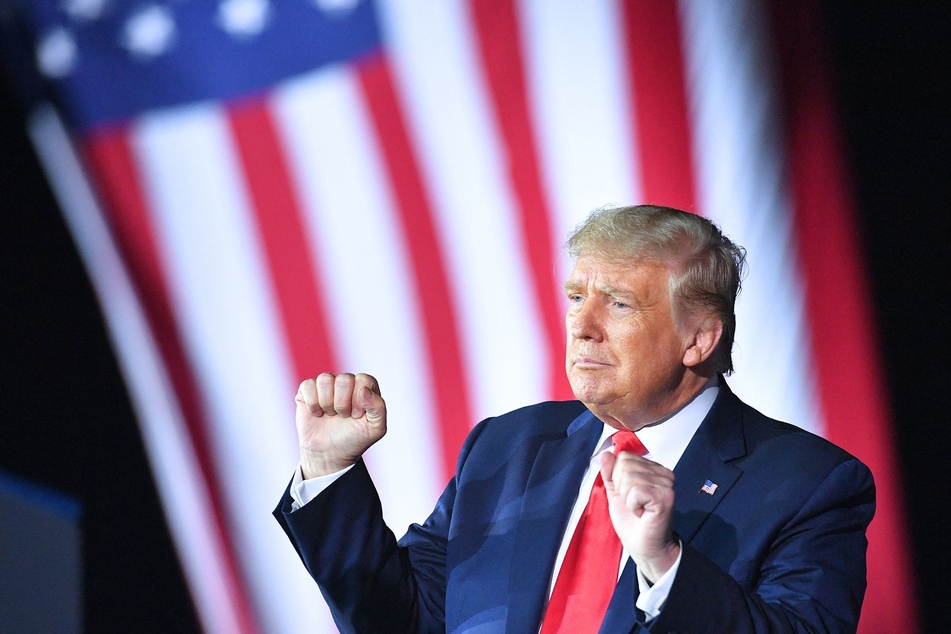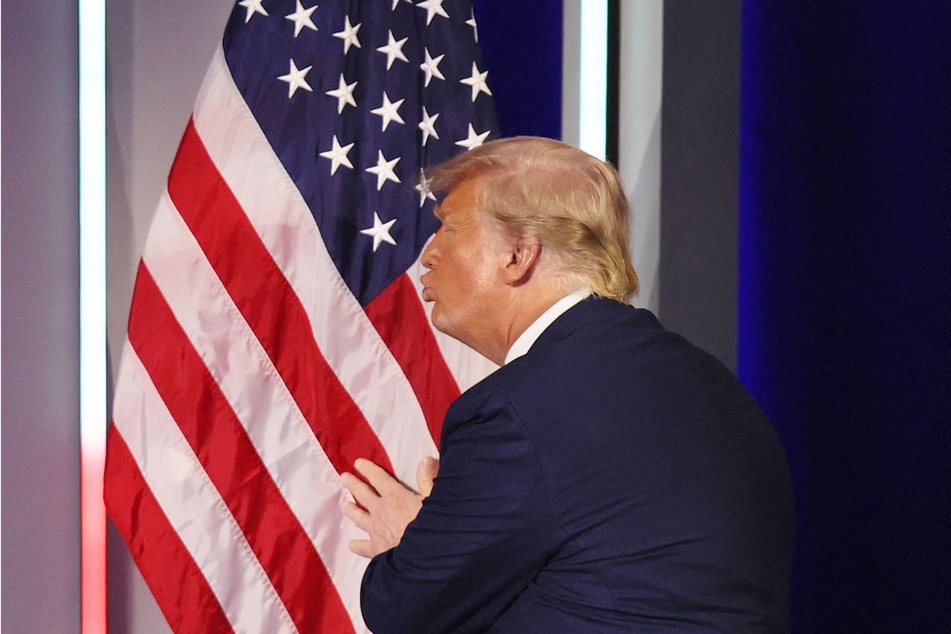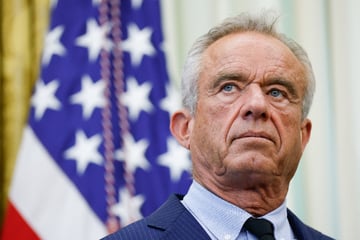Should Donald Trump be constitutionally barred from running for president?
Palm Beach, Florida - A debate has been raging online and in political circles about whether a constitutional clause could be used to ban Donald Trump from running for president.

As Trump faces 91 felony charges within four criminal indictments, the question on everyone's mind is will he end up serving time, or will he manage to evade accountability once again?
An even bigger question from some Trump critics is whether he can be stopped from returning to the White House.
On Saturday, The Atlantic published an op-ed in which conservative legal scholars Laurence Tribe and J. Michael Luttig argued that Trump should be barred from the presidency according to a specific constitutional clause.
"Having thought long and deeply about the text, history, and purpose of the Fourteenth Amendment's disqualification clause for much of our professional careers, both of us concluded some years ago that, in fact, a conviction would be beside the point," the op-ed argues.
"The former president's efforts to overturn the 2020 presidential election, and the resulting attack on the US Capitol, place him squarely within the ambit of the disqualification clause, and he is therefore ineligible to serve as president ever again."
Could the Fourteenth Amendment ban Donald Trump from office?

Tribe and Luttig aren't the only experts making the argument, as conservative law professors William Baude and Michael Stokes make similar points in a 126-page report that is set to be published next year in The University of Pennsylvania Law Review.
The report argues that there is "abundant evidence" that Trump "both 'engaged in' 'insurrection or rebellion' and gave 'aid or comfort' to others engaging in such conduct, within the original meaning of those terms as employed in Section 3 of the 14th Amendment."
The amendment includes a provision that bans "those who 'engaged in insurrection' against the United States from holding any civil, military, or elected office." The ban can only be overturned with a two-thirds vote from both the House and the Senate.
Those opposed to using the clause argue that describing the events surrounding January 6 as an insurrection is still debatable, and Trump having never been charged for such helps prove that point.
In an op-ed for The Hill, Jonathan Turley described the argument as a "Constitutional urban legend" and the "ultimate Hail Mary pass" by Democrats and those against Trump if the indictments "fail to get the job done."
"I simply fail to see how the text, history or purpose of the 14th Amendment even remotely favors this view," Turley added. "Despite the extensive research of Baude and Paulsen, their analysis ends where it began: was January 6 an insurrection or rebellion?"
Cover photo: ALMOND NGAN / AFP

